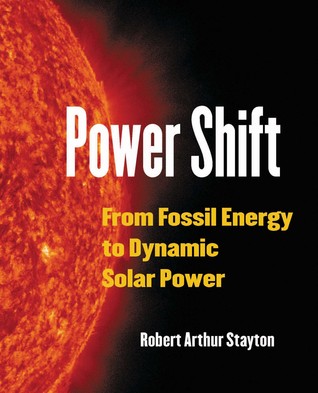[alert variation=”alert-info”]Publisher: Sandstone Publishing
Formats: Paperback, Kindle, eBook
Purchase: Powell’s | Amazon | Barnes & Noble | iBooks[/alert]
The substantial trade paperback Power Shift is a scholarly volume complete with a twenty-six-page notes and references section. Robert Stayton’s writing, however, is so good that most readers will have no difficulty understanding the many concepts he discusses throughout the text. Excellent illustrations explain difficult concepts in a simplified way (such as how nuclear energy works); charts, graphs, and tables give further clarifications. The many sidebars are useful. Even though this is an outstanding text on the subject of energy, and particularly solar (which the author advocates), it is probably too much reading for most without a serious interest in the subject.
This is all about energy from prehistoric times to today, with plans and projects that go into the future. Stayton starts with the first energy source – wood fire – and continues reviewing in great detail the many other sources of energy humans have historically used (animal power, wind mill, water power, and steam) until we arrive at fossil fuels and all the unexpected, damaging side effects they’ve caused, and are still causing, to mankind and the planet. He also goes into a discussion of nuclear energy and its safety. Stayton’s solution is using the unlimited solar power provided by the sun for an indefinite time, and he elaborates on how it could help with future energy requirements.
This volume would be particularly useful in public school and university library collections, as well as for those working on the subject of future energy. This is an equally useful volume for organizations working on solar and other alternate energy sources, as well as for those civic and government organizations with the power to propose and fund future alternative-energy solutions.
Stayton spends very little time discussing the arguments of those opposing solar power. Renewable energy is still expensive compared to those of fossil fuels, though the costs of solar panels have come down over the last decades. Yet Stayton’s arguments that the next major energy epoch in human history will be solar are very convincing.
[signoff predefined=”Sponsored Review Program” icon=”book”][/signoff]

